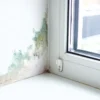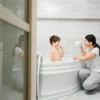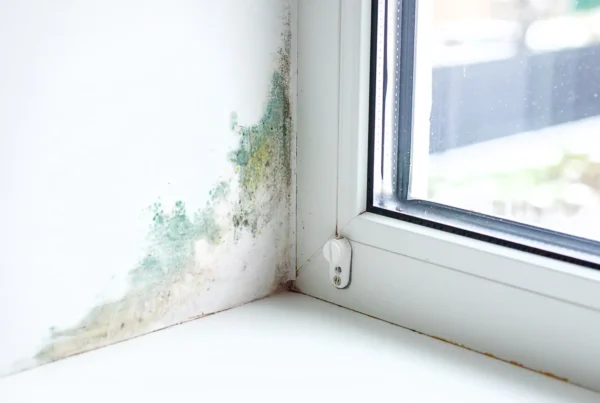Summary
Defiant, irritable behaviour in children may be more than typical moodiness. When a child has a diagnosis of Pediatric Acute‑Onset Neuropsychiatric Syndrome (PANS) or (ODD), these children often display persistent anger, arguing, rule-breaking and spiteful behaviour which go beyond normal childhood phases.
Parents should know that in the context of PANS/PANDAS the root cause of ODD-type behaviours may be neuroinflammation, immune dysregulation or a brain immune-triggered response rather than just “bad behaviour.”
The good news is that even while you explore root causes with a practitioner you can apply practical tools at home. Strategies like keeping consistent routines, using positive reinforcement, limiting screen time, creating positive interactions and supporting your own wellbeing can make a real difference.
Key takeaways for parents are: watch for signs that go beyond normal defiance, seek deeper investigation into root causes when ODD overlaps with PANS/PANDAS, and use structured behavioural tools while also supporting immune, gut and brain health.
If you want more clarity on whether your child might have PANS or PANDAS, take our free PANS/PANDAS Symptom Assessment. Explore how your child’s symptoms might fit into the official diagnostic criteria, and gain valuable knowledge on how the process works.
FAQS
Q1. What is ODD in children with PANS or PANDAS? Oppositional Defiant Disorder (ODD) is a pattern of anger, irritability, and defiance toward authority figures. In children with PANS or PANDAS, these behaviors may result from brain inflammation and immune system imbalance rather than simple misbehavior.
Q2. What are common symptoms of ODD when PANS or PANDAS is involved? Children may have frequent outbursts, irritability, refusal to follow rules, blaming others, or acting purposefully defiant. When related to PANS or PANDAS, these symptoms often appear suddenly and may worsen during immune flare-ups.
Q3. Why should parents look beyond behavior when ODD overlaps with PANS or PANDAS? When the immune system triggers inflammation in the brain, it can affect emotions and impulse control. Addressing behavior alone may not help unless the underlying inflammation and infection are also treated.
Q4. What holistic approaches can help manage ODD behavior in children with PANS or PANDAS?
Helpful strategies include maintaining consistent routines, using positive reinforcement, limiting screen time, encouraging calm communication, and supporting overall brain and immune health through nutrition, sleep, and stress reduction.
Q5. How can parents support their own wellbeing while managing ODD and PANS or PANDAS? Caring for a child with complex needs can be overwhelming. Parents can benefit from setting boundaries, practicing self-care, seeking community or professional support, and learning more about how the condition affects behavior.
Q6. When should families seek professional support? If a child shows sudden or severe mood swings, defiance, or anxiety that do not respond to typical parenting approaches, it may be time to consult a practitioner who specializes in PANS and PANDAS. Early intervention can make a significant difference in healing and family harmony.
Introduction
Dealing with a child’s antagonistic behavior is a common challenge for just about every parent. Kids have bad days. They all go through phases of defiance. But sometimes, defiant behavior is more than just a phase.
When these behaviors become frequent, persistent, and disrupt daily life, it may be a sign of Oppositional Defiant Disorder (ODD). If your child is affected by PANS/PANDAS, ODD may be part of how their brain inflammation manifests. Let’s explore what ODD is, its symptoms, and how to manage it.
What is ODD in the Context of PANS/PANDAS?
ODD is a mental health condition characterized by a pattern of anger, irritability, defiance, and hostility towards authority figures, parents, teachers, and peers. These behaviors go far beyond typical childhood disobedience and irritability. Managing ODD in children requires understanding these behavioral patterns and their potential connection to underlying conditions like PANS/PANDAS. With ODD, the behaviors are persistent and long-lasting.
Symptoms of ODD in Children with PANS/PANDAS
Kids with ODD don’t do well with the word ‘no’. They tend to be inflexible and have trouble going with the flow. When they’re triggered, you know an explosion of emotion may be inevitable.
ODD can look like:
😤 Excessive or long-lasting tantrums
💥 Emotional outbursts
🗣️ Excessive arguing
😢 High sensitivity
😡 Low tolerance for frustration
🤯 Little impulse control
🗯️ Hurtful with their words
🚫 Balking against rules
😖 Intentionally doing things to annoy or upset others
If PANS/PANDAS is involved, these symptoms may have come on suddenly. And symptoms are likely persistent, causing significant problems in relationships, school, family, and social activities. Understanding the overlap between PANS/PANDAS and ODD is crucial for effective treatment and management.
Diagnosing ODD in Children
ODD symptoms fall into three categories. Managing ODD in children involves recognizing these symptoms and understanding their potential triggers, including PANS/PANDAS.
For an ODD diagnosis, a practitioner will look for 4 or more symptoms from the following categories lasting for at least 6 months and being directed at someone other than a sibling.
Anger and irritability
⚠️Temper tantrums
⚠️Frequent outbursts of anger and resentment
⚠️Touchy and/or easily annoyed by others
⚠️Frequently angry and/or disrespectful
Argumentative and defiant behavior
⚠️Excessively argumentative
⚠️Refusal to comply with requests and rules
⚠️Blames others for own mistakes
⚠️Deliberately tries to annoy or upset others
Vindictiveness
⚠️Spiteful, revenge-seeking
⚠️Saying mean and hateful things when angry or upset
Symptoms can range from mild, where the behaviors occur in a single setting, to severe where symptoms manifest in 3 or more settings.
Before we talk about strategies to help manage ODD, I want to be clear. If your child gets an ODD diagnosis, it’s important for you and your practitioner to dig deeper and figure out the root cause. Yes, there are things you can do to help manage the defiant and troubling behavior. But there is something underneath. It could be PANS/PANDAS, or something else that triggers autoimmune encephalitis — a condition where the body’s immune system attacks the brain, causing inflammation.
Regardless of the specific condition or diagnosis, there are things you can do — sometimes things your doctor isn’t aware of. If you need help finding the root cause of your child’s ODD or another confounding condition, my team is happy to speak with you. You can book a consultation here.
Effective Strategies for Managing ODD in Children
While you’re in the process of identifying and addressing the root cause of your child’s ODD, it is possible to help your child improve their behavior.
Here are some practical tips to manage ODD in children, especially those affected by PANS/PANDAS:
Consistency
Maintain consistent rules, consequences, and schedules at home and at school. Predictability can help children with ODD know what to expect.
Positive Reinforcement
Praise and reward your child for good behavior. Positive reinforcement can motivate them to make better choices.
Effective Communication
Encourage open and respectful communication. Listen to your child’s concerns and feelings and help them express themselves constructively.
Limit Screen Time
Excessive screen time can exacerbate behavioral issues. Set reasonable limits on screen use and encourage physical activity.
Pick Your Battles
You’ll exhaust yourself and frustrate your child if you are fighting over every defiant behavior. Make sure you discuss boundaries and expectations during times when you’re not arguing.
Create Positive Interactions
Schedule consistent times with your child where you can do things they enjoy.
ODD Impacts More than Just Your Child
Parenting a child with ODD is challenging. It affects your child, but it also impacts you. Make sure you address your own well-being and get the support you need. Your mental health is just as important as your child’s.
If you are wondering if your child’s ODD symptoms might be related to a PANS or PANDAS diagnosis, I have some resources to help and support you:
✔ If you want more clarity on whether your child might have PANS or PANDAS, take our free PANS/PANDAS Symptom Assessment. Explore how your child’s symptoms might fit into the official PANS and PANDAS diagnostic criteria, and gain valuable knowledge on how the process works. To take the symptom assessment, click here.
✔For easy to implement approaches to reducing inflammation in your child’s body, download my free eBook, Healing from PANS/PANDAS and Autoimmune Encephalitis. Learn why healing your child’s gut is always step one when it comes to brain health, how the brain detoxifies and what to do to facilitate this process, the role of the autonomic nervous system in healing, and so much more.! To download your free copy, click here.
✔ Sign-up for my email newsletter – you will receive tons of research and actionable information in this biweekly resource
✔ Join the private Facebook community for parents of children with PANS/PANDAS and other neuroinflammatory brain conditions
✔ And finally, if you are interested in getting to the root of your child’s diagnosis and reversing symptoms for good, join me in my Foundations in Healing Jumpstart Program. The Foundations Program is a highly mentored, 8-week learning intensive program for parents of children with inflammatory brain conditions like PANS/PANDAS, autism, ADHD, anxiety/depression, and Lyme. In addition to gaining access to my proven methodologies and proprietary knowledge, you will also be learning directly from me in an intimate group setting. For more on the Jumpstart Mentorship program, click here.
And remember, your child’s body is hardwired to heal, we just need to provide the tools. We are here for you!
For more information on the Foundations Program, click here
To hear more about what former participants are saying, click here.
Resources
https://www.mayoclinic.org/diseases-conditions/oppositional-defiant-disorder/symptoms-causes/syc-20375831
https://www.hopkinsmedicine.org/health/conditions-and-diseases/oppositional-defiant-disorder
https://my.clevelandclinic.org/health/diseases/9905-oppositional-defiant-disorder
https://drroseann.com/is-it-odd-or-pans-pandas
https://drroseann.com/is-it-odd-or-something-else







